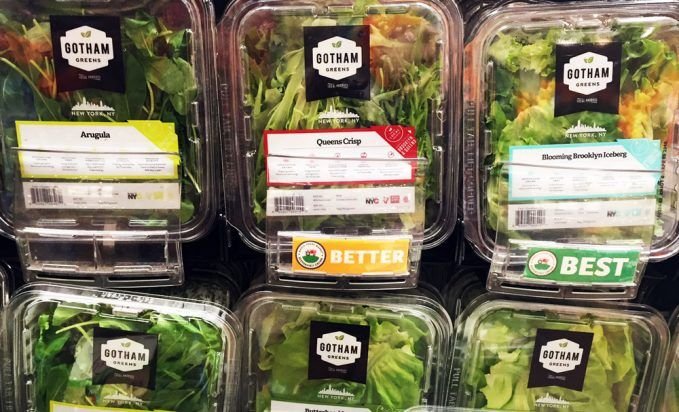
A new bill introduced in New York City Council Thursday addresses the need for an urban agriculture plan that doesn’t fall through the cracks of the city’s zoning and building regulations, the Wall Street Journal reports. The bill, introduced by Councilman Rafael Espinal and Brooklyn Borough President Eric Adams and assigned to the Land Use Committee, also raises the possibility of an office of urban agriculture. If a New York City farm bill seems surprising, you may also be surprised to know that NYC has the country’s largest urban agriculture system, including community gardens, rooftop farms and greenhouses.
The city’s urban farmers have been facing a regulatory system that doesn’t know quite what to do with them, making logistical needs like insurance even more thorny than they’d otherwise be. Brooklyn Borough President Adams said, “We’re not talking about our mom and dad growing tomatoes in the backyard, we’re talking about the potential of having major farming on rooftops to deal with food deserts. This is the wave of the future.” He’s referring to the 14,000 acres of rooftop space that’s currently unused and, if converted to gardens, could have the potential to feed millions.
But according to a recent report by the Brooklyn Law School, current zoning codes make little or no mention of small hydroponic operations that, for example, supply microgreens and rare herbs to the city’s Michelin-starred restaurants. Rooftop gardens are only allowed in non-residential areas, and there are restrictions on where produce can be sold.
Councilman Espinal believes a comprehensive food plan should lift restrictions, untangle regulations and make it easier for the city to encourage agriculture, creating jobs and more access to fresh produce as well as reducing the carbon footprint associated with transporting food. “It would be a win, win, win across the board for the entire city.”
Clearer regulations would also attract more investors. John Rudikoff, head of the Center for Urban Business Entrepreneurship at Brooklyn Law School points to nearby Newark, which has revamped its zoning code to include urban agriculture-specific language. The city is now home to AeroFarms, which is among the country’s largest indoor farming businesses. Less confusion around urban farming rules could also benefit nonprofits that use agriculture as a teaching and community-building tool.
BrightFarms CEO Paul Lightfoot reports that doing business in big cities like New York, Chicago and Washington is, “devilishly difficult and expensive and slow.” And according to Jason Green, co-founder of Edenworks, a Bushwick aquaponic farming company that has raised $3 million in investment in two years, “There’s a barrier to entry here. It’s often up to the operators to work through a fragmented regulatory and incentive environment and figure out who you are accountable to.”
In many cities they have what they call a "food desert" where there are so few grocery stores that there are areas where its incredibly hard to go shopping without a car or having to walk several miles. They need to increase food productivity sooner rather than later as it will bring jobs and better overall health!